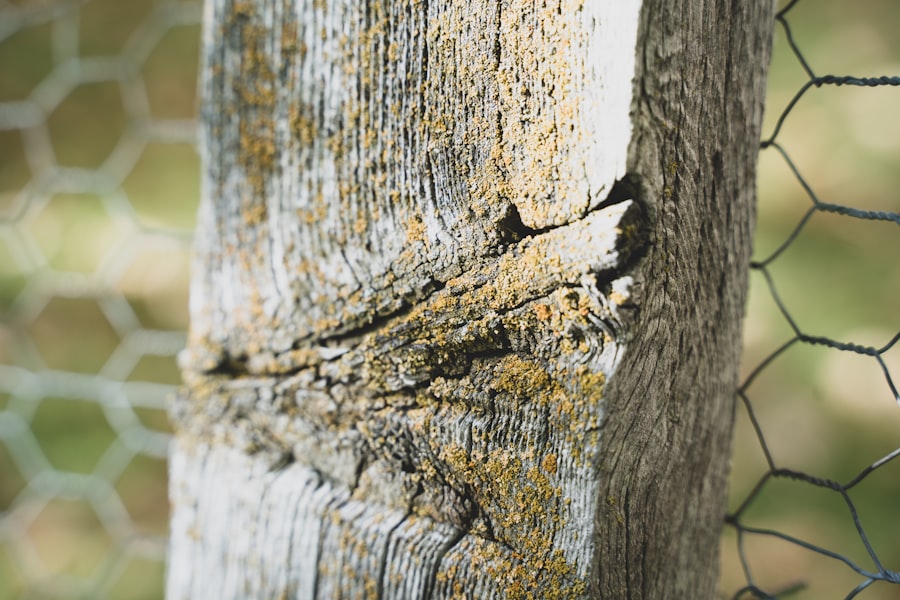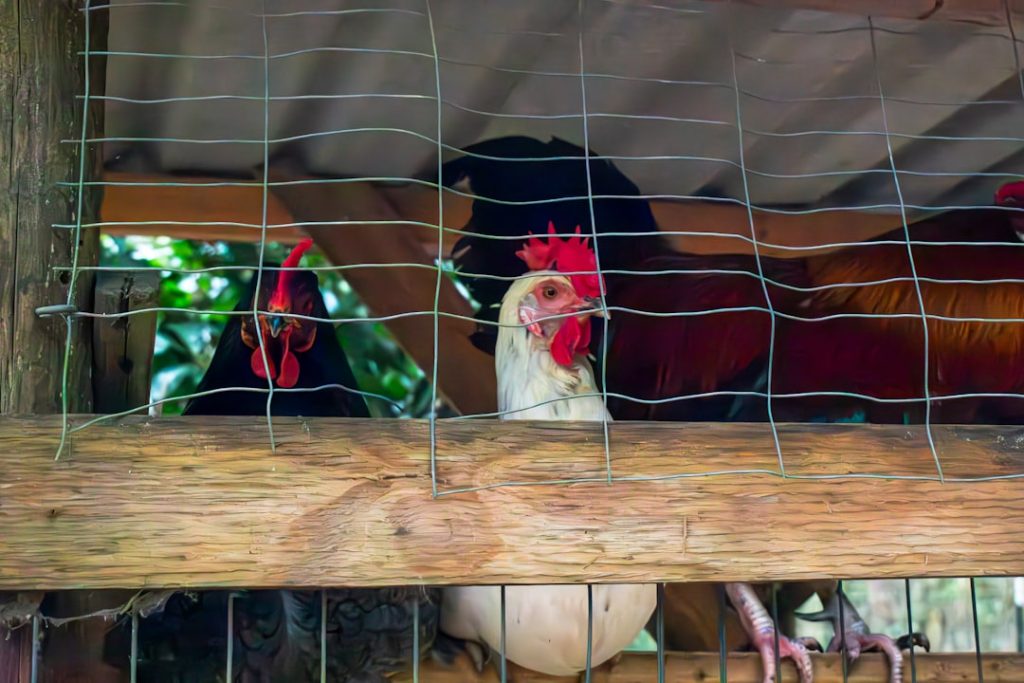Chickens are valuable livestock for farms and backyard settings, offering fresh eggs, natural pest control, and engaging behavior. However, protecting chickens from predators is a significant challenge for owners. Common threats include foxes, raccoons, hawks, and domestic dogs.
Predator attacks can result in financial losses and emotional distress for chicken keepers who have invested resources and care into their flocks. This article examines effective strategies for safeguarding chickens against predators, including the implementation of physical barriers, use of natural deterrents and repellents, training methods, and professional assistance options.
Table of Contents
- 1 Understanding Chicken Behavior
- 2 Creating Physical Barriers
- 3 Using Natural Deterrents
- 4 Implementing Repellents
- 5 Training and Behavior Modification
- 6 Seeking Professional Help
- 7 FAQs
- 7.1 What are some natural ways to keep chickens away from the porch?
- 7.2 Are there any commercial products available to keep chickens away from the porch?
- 7.3 Why is it important to keep chickens away from the porch?
- 7.4 What are some other methods to keep chickens away from the porch?
- 7.5 Are there any local regulations or laws regarding keeping chickens away from residential areas?
Key Takeaways
- Understanding chicken behavior is crucial in addressing the problem of chicken predation.
- Creating physical barriers such as fences and netting can help protect chickens from predators.
- Using natural deterrents like predator urine or decoy animals can help keep predators away from the chicken coop.
- Implementing repellents such as motion-activated lights or sound devices can also help deter predators.
- Training and behavior modification techniques can be used to teach chickens to be more cautious and alert to potential threats.
Understanding Chicken Behavior
Chicken Instincts and Behavior
Before implementing any predator protection methods, it’s essential to understand the behavior of chickens. Chickens are naturally skittish animals that are always on the lookout for potential threats. They have a strong instinct to seek out hiding spots and roost in elevated areas to avoid predators.
Flock Dynamics and Vulnerability
Understanding these behaviors can help in designing effective predator protection measures. Additionally, chickens have a pecking order within their flock, which can affect their response to potential threats. Some chickens may be more vigilant and quick to sound the alarm, while others may be more passive and vulnerable. By understanding these dynamics, chicken owners can better assess the vulnerability of their flock and take appropriate measures to protect them.
Recognizing Distress Signals
Chickens also have specific vocalizations and body language that indicate distress or alarm. Learning to recognize these signs can help chicken owners respond quickly to potential threats. For example, chickens may cluck loudly, flap their wings, or huddle together when they sense danger. By being attuned to these signals, chicken owners can intervene before a predator has the chance to attack. Overall, understanding chicken behavior is crucial in developing effective predator protection strategies.
Creating Physical Barriers

One of the most effective ways to protect chickens from predators is by creating physical barriers around their coop and run. This can include using sturdy fencing with buried wire mesh to prevent digging predators from gaining access. Additionally, adding a roof or netting over the top of the run can deter aerial predators such as hawks and owls.
It’s important to ensure that the fencing is secure and free from any gaps or weak spots that predators could exploit. Regular maintenance and inspection of the fencing is essential to keep predators at bay. Another physical barrier that can be effective is using predator-proof latches on coop doors and windows.
Raccoons and other clever predators are adept at opening latches and doors, so using secure locks and latches can prevent break-ins. Additionally, reinforcing coop windows with hardware cloth can prevent predators from gaining access through these vulnerable points. By creating strong physical barriers, chicken owners can significantly reduce the risk of predator attacks on their flock.
In addition to these measures, it’s important to consider the layout of the chicken coop and run. Providing ample hiding spots and elevated roosting areas can give chickens a safe place to escape from predators. By creating a well-designed and secure environment for chickens, chicken owners can minimize the risk of predator attacks.
Using Natural Deterrents
In addition to physical barriers, natural deterrents can be used to discourage predators from targeting chickens. One effective natural deterrent is the presence of guardian animals such as dogs or geese. These animals can help deter predators through their territorial behavior and vocal warnings.
Dogs, in particular, are known for their protective instincts and can be trained to patrol the perimeter of the chicken coop and run. Geese are also effective at deterring predators with their loud honking and aggressive behavior towards intruders. Another natural deterrent is the use of motion-activated lights and sound devices.
These devices can startle predators with sudden bursts of light or loud noises, making them think twice about approaching the chicken coop. Additionally, installing predator decoys such as fake owls or coyotes can create the illusion of a dangerous environment for potential predators. Planting thorny bushes or creating dense landscaping around the perimeter of the chicken coop can also act as a natural deterrent.
Predators may be deterred by the challenge of navigating through prickly bushes or dense vegetation to reach the chickens. By using natural deterrents in conjunction with physical barriers, chicken owners can create a multi-layered defense system against predators.
Implementing Repellents
In some cases, using repellents can be an effective way to deter predators from targeting chickens. There are various types of repellents available, including chemical sprays, electronic devices, and natural substances. Chemical sprays containing predator urine or other scent deterrents can be applied around the perimeter of the chicken coop to create a barrier that predators will avoid.
Electronic devices that emit high-frequency sounds or vibrations can also be used to repel predators without causing harm to the chickens. Natural substances such as garlic or hot pepper spray can also be effective at deterring predators due to their strong odor and taste. These substances can be applied to the perimeter of the chicken coop or directly onto the chickens themselves to make them less appealing to predators.
It’s important to use repellents carefully and according to the manufacturer’s instructions to ensure the safety of the chickens and effectiveness of the deterrent. In addition to these methods, some chicken owners have had success with using visual deterrents such as reflective tape or shiny objects that move in the wind. These visual deterrents can confuse and intimidate predators, making them less likely to approach the chicken coop.
By implementing repellents in combination with other predator protection methods, chicken owners can create a comprehensive defense strategy for their flock.
Training and Behavior Modification

Teaching Chickens to Recognize Threats
This approach involves teaching chickens to recognize and respond to potential threats in order to avoid danger. One method of training involves using positive reinforcement to reward chickens for exhibiting vigilant behavior or responding appropriately to alarm signals. By associating certain behaviors with rewards, chickens can learn to be more alert and responsive to potential threats.
Discouraging Predatory Behavior
Behavior modification techniques can be used to discourage predatory behavior in certain animals that pose a threat to chickens. For example, training dogs or cats in the area to avoid approaching the chicken coop or run can help reduce the risk of attacks. This can be achieved through consistent training and reinforcement of boundaries around the chicken area.
Enrichment Activities for Chicken Safety
Providing enrichment activities for chickens such as hiding treats or creating obstacle courses can help them stay active and alert, which can contribute to their overall safety. By engaging chickens in stimulating activities, they are less likely to become complacent and more likely to be aware of potential threats.
Seeking Professional Help
In some cases, despite best efforts, predator attacks on chickens may persist, leading chicken owners to seek professional help. Wildlife experts or pest control professionals can provide valuable insight into specific predator behaviors and offer tailored solutions for protecting chickens. These professionals may conduct site assessments, recommend specialized predator control measures, or provide ongoing monitoring and support.
Additionally, seeking advice from experienced chicken breeders or local agricultural extension services can offer valuable guidance on predator protection strategies specific to the region and environment. These resources may provide access to community networks for sharing information and support among fellow chicken owners facing similar challenges. In conclusion, protecting chickens from predators requires a multi-faceted approach that takes into account their behavior, physical barriers, natural deterrents, repellents, training, and seeking professional help when needed.
By implementing a combination of these methods, chicken owners can create a safe and secure environment for their flock, allowing them to thrive and flourish without the constant threat of predators.
If you’re looking for more tips on keeping chickens, you might want to check out this article on where to put a chicken coop. It offers valuable insights on the best location for your coop to keep your chickens happy and away from your porch.
FAQs
What are some natural ways to keep chickens away from the porch?
Some natural ways to keep chickens away from the porch include using citrus peels, coffee grounds, or vinegar as a deterrent. Additionally, planting strong-smelling herbs like lavender or mint near the porch can also help keep chickens at bay.
Are there any commercial products available to keep chickens away from the porch?
Yes, there are commercial products such as chicken repellent sprays or ultrasonic devices that are designed to keep chickens away from specific areas like porches. These products can be found at garden centers or online.
Why is it important to keep chickens away from the porch?
Keeping chickens away from the porch is important to prevent them from causing damage to the area, leaving droppings, or scratching at the surfaces. It also helps maintain a clean and tidy outdoor space for human use.
What are some other methods to keep chickens away from the porch?
Other methods to keep chickens away from the porch include installing physical barriers such as fences or netting, using motion-activated sprinklers, or training the chickens to avoid the area through positive reinforcement techniques.
Are there any local regulations or laws regarding keeping chickens away from residential areas?
Local regulations and laws regarding keeping chickens away from residential areas vary by location. It’s important to check with local authorities or homeowner’s associations to ensure compliance with any relevant regulations or restrictions.
Meet Walter, the feathered-friend fanatic of Florida! Nestled in the sunshine state, Walter struts through life with his feathered companions, clucking his way to happiness. With a coop that’s fancier than a five-star hotel, he’s the Don Juan of the chicken world. When he’s not teaching his hens to do the cha-cha, you’ll find him in a heated debate with his prized rooster, Sir Clucks-a-Lot. Walter’s poultry passion is no yolk; he’s the sunny-side-up guy you never knew you needed in your flock of friends!







